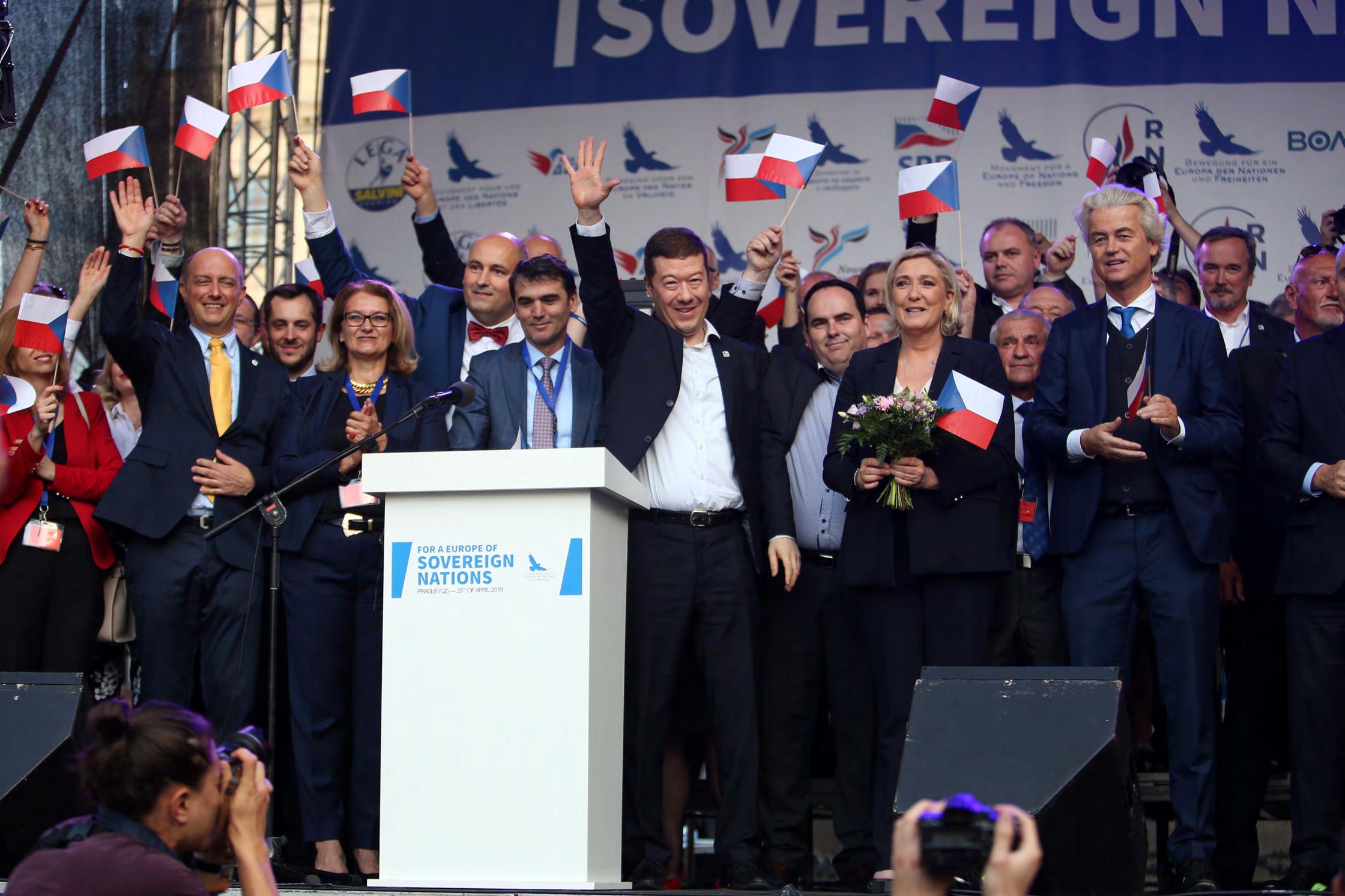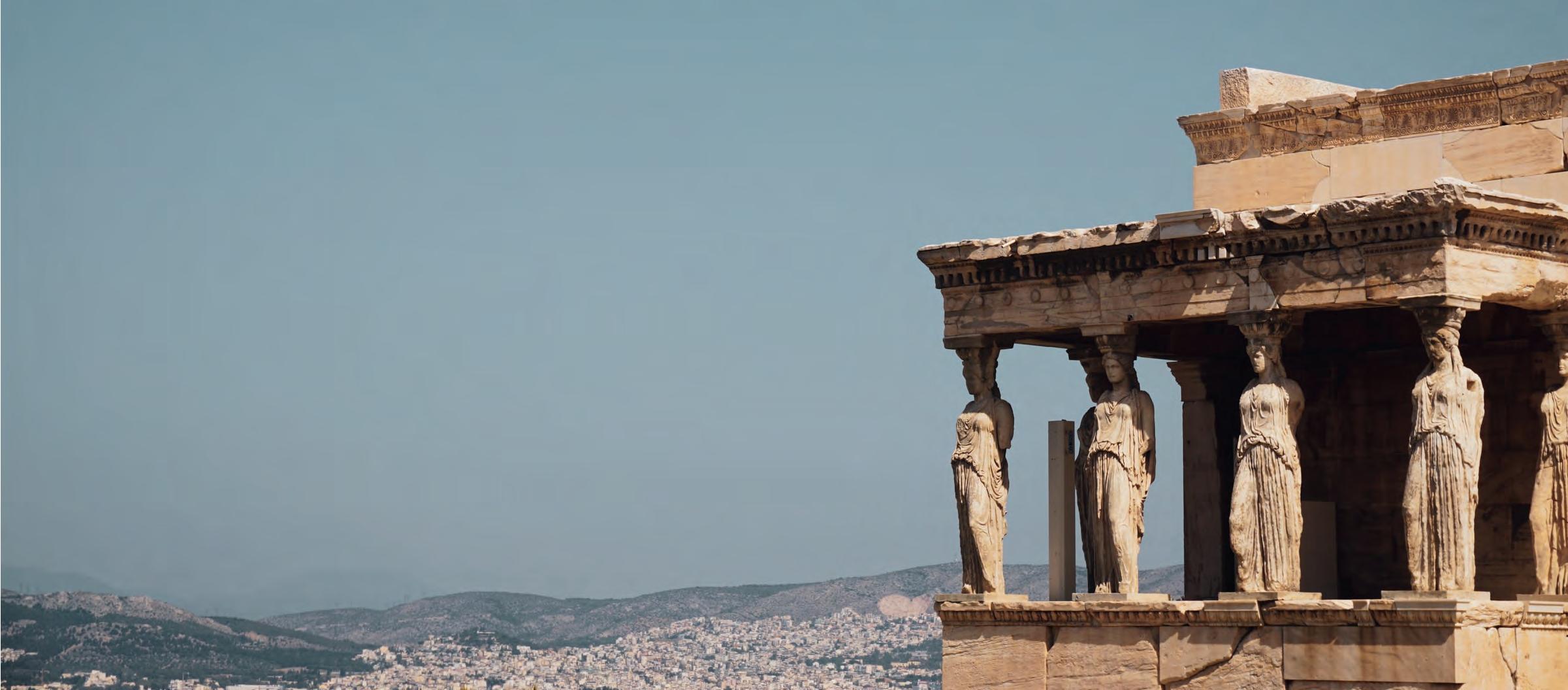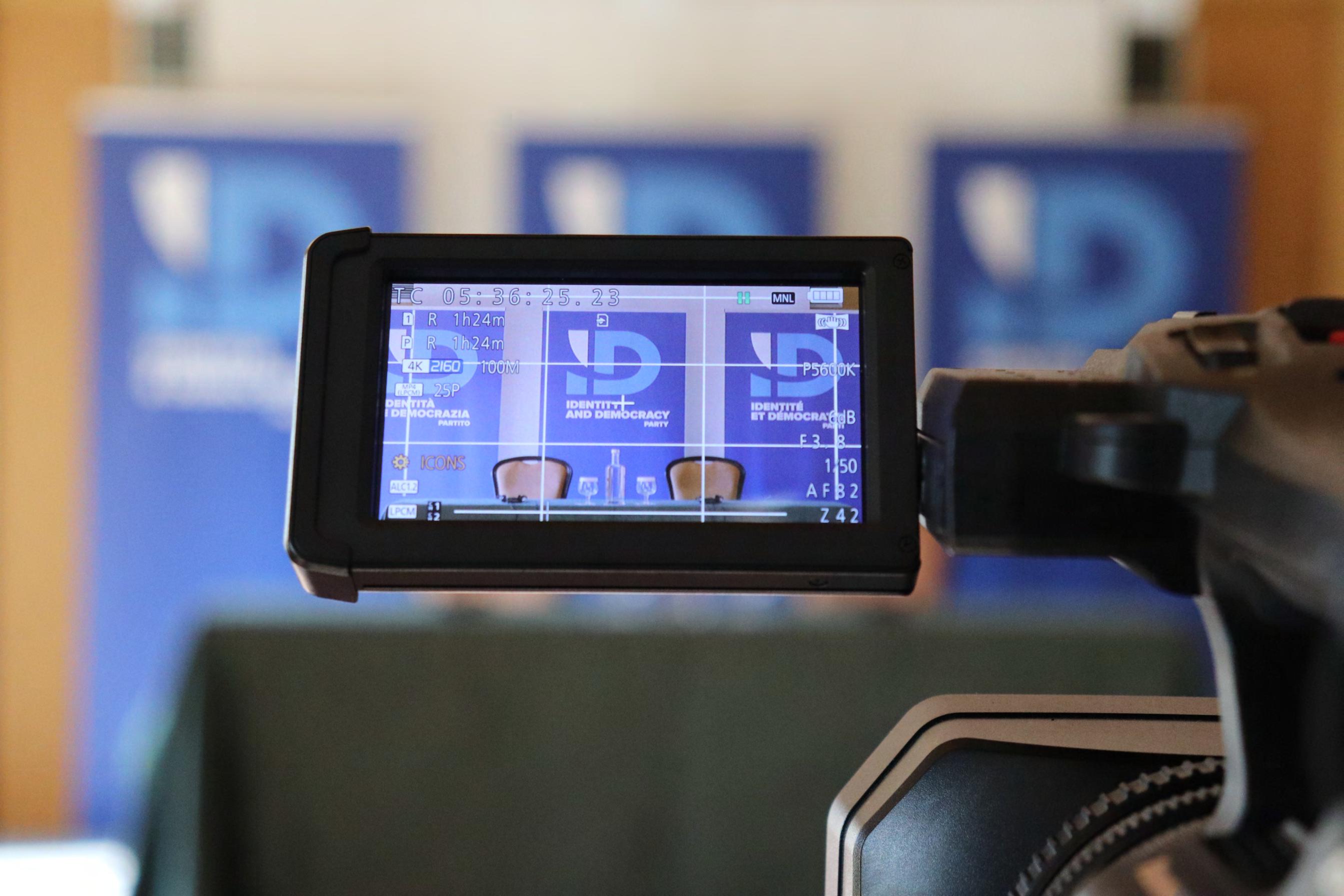
7 minute read
Tomio Okamura, inspireeriv patrioot
Tomio Okamura, the inspiring patriot
Tomio Okamura is a special character in the political life of his country. His aura even crossed the borders of the Czech Republic. In the opinion of all those who know him, everywhere in Europe, in particular the other leaders of the Identity and Democracy Party, he is an inspiring personality.
Advertisement
Born in Tokyo, of a Czech mother and a Japanese father, and possessing dual nationality, he spent his childhood in his fathers country, before nishing his schooling in Czechoslovakia.
e rest of his story will forge his character: he lives for a time in an orphanage where he su ers racist remarks, which will a ect him deeply. After high school spent studying chemistry, he returned to the Japanese capital where he found small jobs, including as an employee in a cinema complex.
On his return to the Czech Republic, he launched a network of travel agencies aimed at a Japanese public, then diversi ed, notably by opening Japanese food stores. Tomio Okamura on oma riigi poliitilises elus väljapaistev tegelane. Tema aura levis isegi Tšehhi piiride taha. Kõik, kes teda tunnevad, kõikjal Euroopas, eelkõige aga teiste Identiteedi ja Demokraatia fraktsiooni liidrid leiavad, et ta on inspireeriv isiksus.
Tokyos sündinud Tomio, kellel on tšehhitarist ema ja jaapanlasest isa ning topeltkodakondsus, veetis lapsepõlve oma sünnimaal ning seejärel omandas hariduse Tšehhoslovakkias.
Tema eluloo ülejäänud seigad on kujundanud tema iseloomu: ta elas mõnda aega lastekodus, kus kannatas rassistlike märkuste all, mis mõjutasid teda sügavalt. Pärast keemiaõpinguid ülikoolis naasis ta Jaapani pealinna, kus leidis juhutöid, sealhulgas töötajana kinokompleksis.
Pärast naasmist Tšehhi Vabariiki käivitas ta Jaapani avalikkusele suunatud reisibüroode võrgustiku ning mitmekesistas hiljem oma äritegevust eelkõige Jaapani toidupoodide avamisega.
Tomio Okamura has an easy and brilliant pen: he writes, at the same time, books on the art of living and Japanese cuisine, but also political themes such as e Art of Governing or e Art of Direct Democracy.
In 2013, he founded a party marked by euroscepticism, a position he will continue to have throughout his political career. After an internal split, he founded the SPD in 2015, a political formation of which he is still the president and which brings together around 10% of the electorate, a trend still con rmed during the October 2021 election.
He targets some of his criticisms on the European Union, responsible for many of the ills from which the Czech Republic su ers, both in terms of migration, fearing that the Czech identity will be diluted, and in terms of energy policy. To ght against the EU, he can count on two deputies in the European Parliament. Tomio Okamura on lihtsa ja geniaalse sulega: ta kirjutab üheaegselt raamatuid Jaapani elukunstist ja köögist ning poliitilistel teemadel, nagu valitsemise kunst või otsedemokraatia kunst.
2013. aastal asutas ta erakonna, mida iseloomustab euroskeptilisus – ta säilitab selle positsiooni kogu oma poliitilise karjääri jooksul. Pärast erakonna sisemist lõhenemist asutas ta 2015. aastal Vabaduse ja Otsedemokraatia Partei (SPD), mille president ta on siiani ja mis koondab umbes 10% valijaskonnast – sama trendi kinnitasid ka 2021. aasta oktoobris toimunud valimised.
Osa tema kriitikast on suunatud Euroopa Liidule, mis vastutab tema arvates paljude Tšehhi Vabariigi probleemide eest, nii sisserände ja Tšehhi identiteedi nõrgenemise eest kui ka energiapoliitika osas. EL-i vastu võitlemisel võib ta europarlamendis arvestada kahe saadikuga.


City spotlight: Athens, the cradle of European civilization
From the city contested by Athena and Poseidon to the current Greek capital, Athens is the focus of all the past, present and future challenges which Europe has faced and will face in the future.
Around the year 1400 BC, it became an important centre of the Mycenaean civilisation and eventually became dominant due to its strategic location on the coast. e city-state was then governed by kings. Ateena ja Poseidoni vaidlusalusest linnast praeguse Kreeka pealinnani on Ateena kõigi nende mineviku, oleviku ja tuleviku väljakutsete keskpunkt, millega Euroopa on silmitsi seisnud ja tulevikus silmitsi seisab.
Umbes aastal 1400 sai sellest Mükeene tsivilisatsiooni oluline keskus, mis lõpuks sai domineerivaks tänu oma strateegilisele asukohale rannikul. Seejärel valitsesid linnriiki kuningad.

It was at this time that according to Greek mythology eseus defeated the Minotaur. Forgetting to hoist the white sail which would signify his success, his father Aegeus threw himself in despair into the sea that now bears his name.
e rst reforms of the system were initiated by Dracon, Solon and Clisthenes, which led step by step to democracy. Just sel ajal võitis Rooma mütoloogia kohaselt eseus Minotauruse. Unustades heisata valge purje, mis tähendaks tema edu, viskas tema isa Egeus end meeleheites merre, mis kannab nüüd tema nime.
Süsteemi esimesed reformid algatasid Dracon, Solon ja Clisthenes, mis viisid samm-sammult demokraatiani.
Võidukad lahingud pärslaste vastu Maratonil ja Salamises, episoodides, mis on aja jooksul jäänud
e victorious battles against the Persians at Marathon and Salamis, in episodes which have remained glorious over time, eventually achieved it regional recognition.
e cultural profusion in the fth century BC which made Athens one of the cradles of European civilisation took place in this context.
Some cities, like Sparta, began to revolt. Athens lost its political predominance, but remained a cultural centre valued by the Roman emperors.
It was occupied successively by the Franks, the Catalans, the Florentines, the Ottomans and, nally, the Venetians, who reduced it o a eld of ruins.
On 25 March 1821, the Archbishop of Patras led a revolt against the Sultan and within ten years the country gained its independence over a territory that included Attica, the Peloponnese and southern Epirus, with the memory of ancient Athens as its guiding force.
e Turks took a dim view of these events, and carried out massacres, including the massacre at Chios (which was painted by Eugène Delacroix).
A philhellenic mobilisation arose throughout the continent to force governments to intervene, which they ended up doing: the Westerners sent a eet which destroyed that of the Ottomans. kuulsusrikkaks, saavutasid lõpuks selle piirkondliku tunnustuse.
Kultuuriline küllus viiendal sajandil eKr, mis muutis Ateena Euroopa tsivilisatsiooni üheks hälliks, toimus selles kontekstis.
Kuid teised linnad, sealhulgas Sparta, hakkasid mässama, sest neid süüdistati varanduse varastamises, mille nad olid kogunud sõdades pärslaste vastu. Ateena kaotas oma poliitilise ülemvõimu, kuid jäi Rooma keisrite poolt hinnatud kultuurikeskuseks.
Seda okupeerisid järjest frangid, katalaanid, renzelased, ottomanid ja lõpuks venelased, kes muutsid selle varemeteks.
25. märtsil 1821 juhtis Patrase peapiiskop ülestõusu sultani vastu ja kümne aasta jooksul saavutas riik iseseisvuse territooriumi üle, mis hõlmas Atika, Peloponnesose ja Lõuna-Epeirose ning mille juhtjõuks oli muistne Ateena.
Türklased suhtusid neisse sündmustesse kahtlustavalt ja viisid läbi massimõrvu, sealhulgas Chiose massimõrva (mida on maalinud Eugène Delacroix).
Kogu mandril tekkis lheleeniline mobilisatsioon, et sundida valitsusi sekkuma, mida nad ka lõpuks tegid: Lääs saatis laevastiku, mis hävitas otomanide laevastiku.
Londoni protokoll kinnitas riigi iseseisvuse 1830. aastal. Pärast
e London Protocol con rmed the country's independence in 1830. After a short period as a republic, Otto I established an absolute monarchy, which was quickly tempered after a coup.
e country was economically underdeveloped and relied on its alliances with other countries.
In 1967, a coup d'état brought the colonels to power. e dictatorship was bloody and marked by the practice of torture. Strategic errors undermined the system, which led to the introduction of parliamentarianism.
In 1981, the country joined the European Union and the Panhellenic Socialist Movement, better known by its acronym PASOK, came to power, making Andreas Papandreou Prime Minister. e country was experiencing prosperous years, bene ting in particular from tourism.
At the end of the 2000s, the country experienced a serious nancial crisis, which called into question its membership in the European Union. lühikest aega vabariigina kehtestas Otto I absoluutse monarhia, mida pärast riigipööret kiiresti piirati.
Riik oli majanduslikult vähearenenud ja sõltus liitlassuhetest teiste riikidega.
1967. aastal tõi riigipööre kolonelid võimule. Diktatuur oli verine ja seda iseloomustas piinamine. Strateegilised vead õõnestasid süsteemi, mis viis parlamentarismi kehtestamiseni.
1981. aastal ühines riik Euroopa Liiduga ja võimule tuli panhellenistlik sotsialistlik liikumine, mida tuntakse rohkem akronüümi PASOK all, tehes Andreas Papandreou peaministriks. Riigis olid jõukad aastad, eelkõige tänu turismile.
2000. aastate lõpus oli riigis tõsine nantskriis, mis seadis kahtluse alla riigi liikmesuse Euroopa Liidus.
KODUMAAD JA PARTEID SÜNDMUSED
KODUMAAD JA PARTEID

VLASTI A STRANY ET PARTIS
VLASTI A STRANY ET PARTIS




